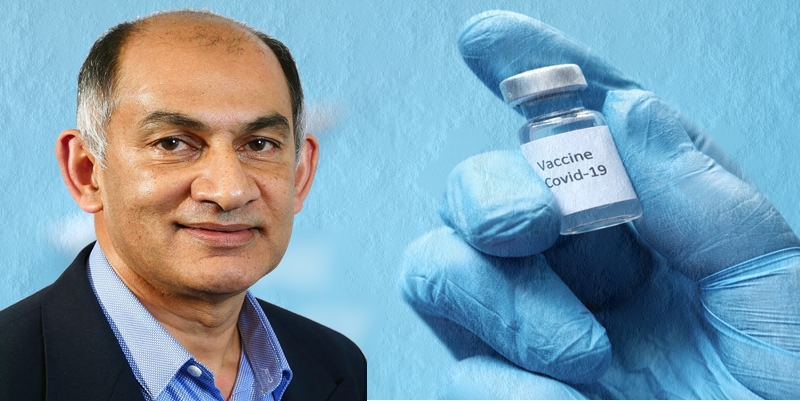COVID-19 Vaccines: Africa Needs to Break the Cycle of Dependency

Interview by Kester Kenn Klomegah
Africa Vaccine Manufacturing Initiative (AVMI) primarily aims at promoting the establishment of sustainable human vaccine manufacturing capacity in Africa. Since its establishment, AVMI together with multiple and different partners, have been advocating for the establishment of vaccine development and manufacturing in Africa.
With the outbreak of coronavirus, AVMI has embarked on public education on the risk of the pandemic and further been persuading African leaders about the need to prioritize manufacturing of vaccines instead of importing.
In this snapshot interview, Patrick Tippoo, Executive Director at the Africa Vaccine Manufacturing Initiative, explains that vaccine manufacturing is a complex, time-consuming exercise requiring considerable commitment, and financial as well as technical resources. He further underscores the fact that the capital investment required is considerable and equally essential is a long-term future view for the health system and population in Africa.
Here are the interview excerpts:
What are your views about the global politics surrounding the coronavirus vaccines? Where does Africa stand in this case?
It is unfortunate that Covid-19 vaccines have become politicized leading to a situation where some regions and countries are lagging far behind others with respect to vaccination coverage. Africa in particular has been affected negatively in this regard.
In your view, should vaccines and medicines be politicized?
In pandemic situations like we are experiencing now it is regrettable that vaccines have become politicized. Ideally one would expect that every effort would be made to ensure that vaccines are made available equitably to ensure that there is no delay in getting the pandemic under control across the globe.
Within the context of current trade wars, for example between the United States and China, and/or between China and India, what should be done to remove distribution barriers for vaccines in regions such as Africa?
I don’t think that trade wars between certain countries are a major reason for Africa’s failure to access vaccines in proportion to other geographies. Africa does not have enough vaccines because the continent could not purchase vaccines in advance and is dependent on facilities like COVAX. COVAX in turn has had challenges in securing enough vaccines for distribution into countries which signed up.
Should African leaders redirect funds to their health systems and health research (R&D)?
African leaders should ensure that no effort is spared in facilitating and supporting the building of large scale vaccine manufacturing capacity on the continent. The recent African Vaccine Manufacturing Summit in April is an encouraging start. Focus needs to be on developing real vaccine R&D capacity which leads to products. This requires substantial investment and a long-term commitment. Furthermore, governments need to commit to buy locally made vaccines and work individually and collectively in creating guaranteed access to African vaccine markets. What makes this 10 times more difficult is that around 40 of the 54 African countries receive the vaccines from UNICEF financed by GAVI.
Do pharmaceutical firms have to be profit-oriented in the global health crisis?
A balance should be struck. Making a profit is vitally important for business sustainability. However, in a global health crisis such as Covid-19, companies should not exploit the situation to generate maximum profits. Indeed, some companies producing Covid-19 vaccines have demonstrated that this is possible, charging a few dollars per vaccine dose.
What role should could the African Union (AU) and other sub-regional organizations play?
They should demand that certainty and access to markets are vital. African governments, sub-regional organizations and the AU should work together to create regional or pooled markets and guarantee purchase of locally produced vaccines. This is possibly the most important enabler of building and sustaining local vaccine manufacturing capacity. They should accelerate efforts to create streamlined regulatory processes for speedy accreditation of vaccine manufacturing facilities and licensing product to ensure that vaccines can be available in the fastest time possible. Delays in getting market authorization for products by National Regulatory Authorities have a direct negative impact on cash flows and create real barriers to building sustainable capacities.
Another essential contribution would be the mobilization of resources and/or creation of enabling environments for resources to be unlocked and discharged as vaccine production is capital intensive and requires access to innovative funding streams over 10-20 years. There should be incentivization of technology transfer partnerships to achieve capacity building in the fastest possible time.They should invest in skills development programs specifically geared to creating a workforce skilled in vaccine development and manufacturing know-how. In summary, no effort should be spared in working to ensure that in a pandemic situation, there should be no delay in getting vaccines to where they are most needed in the fastest possible time.
